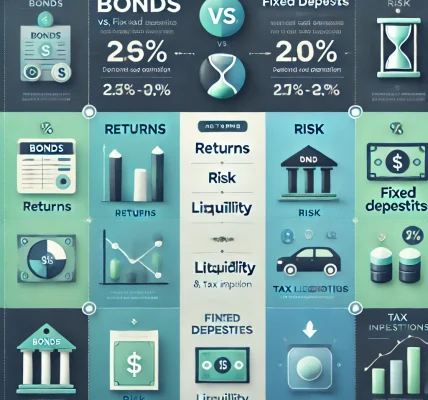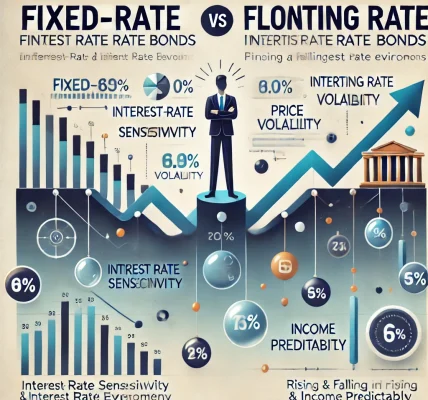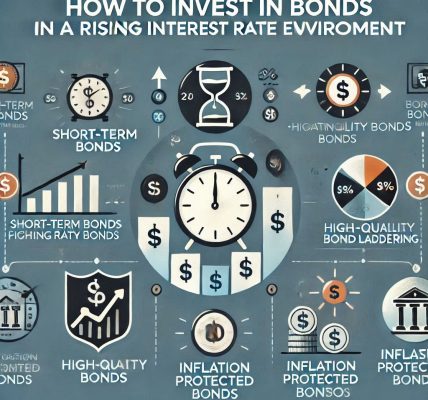In times of economic uncertainty and market volatility, sovereign bonds are often considered a safe haven for investors. Backed by national governments, sovereign bonds offer a relatively low-risk investment option, making them attractive when financial markets experience turmoil.
This article explores the benefits, risks, and considerations of investing in sovereign bonds, helping you decide whether they are the right addition to your portfolio during uncertain times.
📚 What Are Sovereign Bonds?
Sovereign bonds are debt securities issued by a national government to raise funds for public spending and national projects. In return, the government agrees to pay periodic interest to bondholders and return the principal amount upon maturity.
📊 Types of Sovereign Bonds:
- Treasury Bonds (T-Bonds): Issued by the U.S. government with maturities ranging from 10 to 30 years.
- Government Securities (G-Secs): Issued by the Indian government with varying tenures.
- Gilts: Issued by the U.K. government.
- Japanese Government Bonds (JGBs): Offered by Japan with different maturities.
- Eurozone Bonds: Issued by individual European countries or collectively by the European Union.
🎯 Why Are Sovereign Bonds Considered Safe?
✅ 1. Backed by the Government
Sovereign bonds are backed by the full faith and credit of the issuing government, making them one of the least risky investment options. Governments have the power to tax and print money, which helps reduce the likelihood of default.
📉 2. Low Default Risk
Countries with strong credit ratings and sound economic policies have a very low probability of defaulting on their obligations. For instance, U.S. Treasury bonds are regarded as virtually risk-free due to the strength of the U.S. economy.
💹 3. Stable Income Through Fixed Interest Payments
Sovereign bonds provide regular interest payments (coupon payments), ensuring a stable income stream even during economic downturns.
🌍 4. Global Acceptance and Liquidity
Sovereign bonds, especially U.S. Treasuries, are highly liquid and widely accepted in global financial markets, making them easy to buy and sell.
📈 Benefits of Investing in Sovereign Bonds During Uncertain Times
🛡️ 1. Capital Preservation
During economic turmoil, preserving capital becomes a priority for investors. Sovereign bonds, particularly those issued by economically stable nations, protect against potential losses in the equity market.
💰 2. Safe Haven During Market Volatility
In times of uncertainty, investors flock to safe-haven assets, and sovereign bonds top the list. This flight to safety often drives bond prices up and yields down, providing stability for conservative investors.
📊 3. Hedging Against Economic Slowdowns
When equity markets experience downturns, sovereign bonds typically perform well, providing a hedge against overall portfolio losses.
📉 4. Lower Correlation with Equities
Sovereign bonds have a low or negative correlation with equities, reducing overall portfolio volatility and enhancing diversification.
📆 5. Predictable Returns Over Time
With fixed interest payments and a guaranteed return of principal at maturity, sovereign bonds offer predictable returns, ideal for risk-averse investors.
⚠️ Risks and Challenges of Investing in Sovereign Bonds
📉 1. Interest Rate Risk
Sovereign bond prices move inversely to interest rates. When interest rates rise, bond prices fall, potentially leading to capital losses for bondholders.
💸 2. Inflation Risk
Fixed interest payments may lose purchasing power if inflation rises. Inflation erodes the real value of bond returns over time, particularly for long-term bonds.
📉 3. Currency Risk (For Foreign Investors)
Investors buying sovereign bonds denominated in foreign currencies face currency risk. Fluctuations in exchange rates can impact the real value of returns.
🔄 4. Political and Economic Risks
While sovereign bonds are generally safe, political instability or economic mismanagement can affect a country’s ability to meet its debt obligations. Bonds from emerging markets may carry higher risks.
📊 How Do Sovereign Bonds Compare with Other Investments?
| Feature | Sovereign Bonds | Corporate Bonds | Stocks |
|---|---|---|---|
| Risk Level | Low | Medium to High | High |
| Return Potential | Moderate | Higher than Sovereign Bonds | High |
| Income Stability | High | Medium | Low |
| Liquidity | High | Moderate | High |
| Correlation with Equities | Low | Moderate | High |
🌎 Top Sovereign Bonds to Consider During Uncertain Times
🇺🇸 1. U.S. Treasury Bonds
- Issued by the U.S. government.
- Considered the safest investment globally.
- Available in various maturities, offering flexibility to investors.
🇮🇳 2. Indian Government Securities (G-Secs)
- Ideal for Indian investors seeking low-risk fixed-income instruments.
- Backed by the Government of India.
- Available in tenures ranging from 91 days to 40 years.
🇬🇧 3. U.K. Gilts
- Issued by the U.K. government.
- Offer stability during geopolitical or economic uncertainty.
- Available in both short and long-term maturities.
🇯🇵 4. Japanese Government Bonds (JGBs)
- Backed by the Japanese government.
- Known for their stability, though yields are typically lower.
🔥 When Should You Invest in Sovereign Bonds?
📉 1. During Economic Recession
When stock markets decline, sovereign bonds offer a safe haven and protect against losses.
💡 2. To Preserve Capital
If your goal is to protect capital and reduce volatility, sovereign bonds are a reliable choice.
🎯 3. As Part of a Diversified Portfolio
Including sovereign bonds in your portfolio enhances diversification and balances overall risk.
🛠️ Strategies to Maximize Returns from Sovereign Bonds
📚 1. Laddering Maturities for Flexibility
Building a bond ladder with bonds of varying maturities helps reduce interest rate risk and provides consistent returns.
🔄 2. Reinvesting Coupon Payments
Reinvesting interest payments allows you to take advantage of compounding returns.
📈 3. Combining with Inflation-Protected Bonds (TIPS)
Adding Treasury Inflation-Protected Securities (TIPS) safeguards against inflation while maintaining capital preservation.
🌎 4. Diversify Across Geographies
Consider bonds from different countries to mitigate country-specific risks and benefit from global diversification.
📉 Are Sovereign Bonds Always the Safest?
While sovereign bonds offer stability, they are not entirely immune to risks. Inflation, rising interest rates, and geopolitical issues can affect their performance. However, they remain one of the most reliable investment options during uncertain times.
🎨 Final Thoughts: Should You Invest in Sovereign Bonds?
Sovereign bonds offer a safe and predictable source of income, making them an ideal investment during uncertain economic times. While they provide lower returns compared to equities, their low risk and stability make them a crucial component of a well-diversified investment portfolio. By understanding the risks and strategically incorporating sovereign bonds into your portfolio, you can safeguard your investments and weather market volatility effectively.



